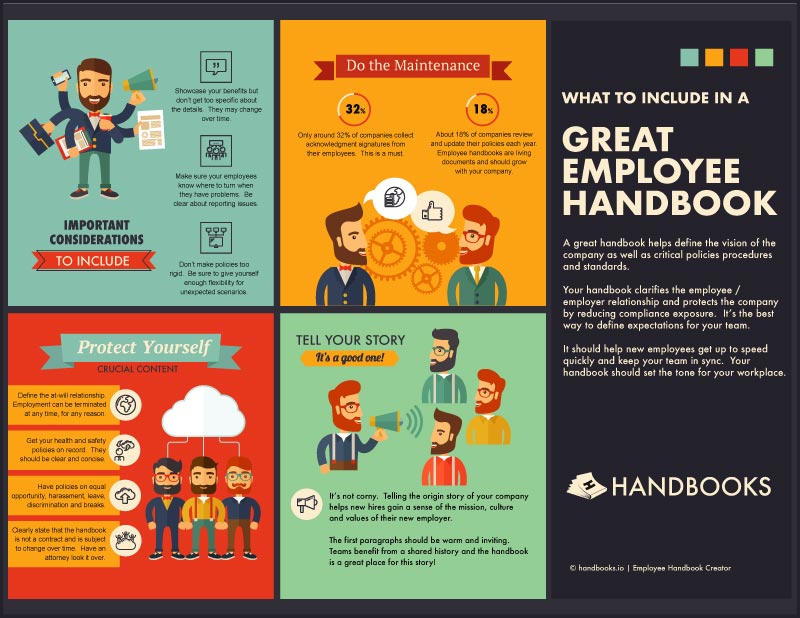Bad policies can create legal risk. Here's what you need to know.
An outdated employee handbook can spell trouble. Here are a couple of the most common policy problems we see in HR Policy Manuals:
At-Will EmploymentThe term "employment-at-will" means that unless there is a specific law to protect employees or there is an employment contract providing otherwise, an employer can discharge an employee at their discretion. Likewise, an employee may quit at any time.
This employment-at-will relationship can be jeopardized unintentionally though. Many states recognize the use of an implied contract of employment when that language is part of an employee handbook. For example, an employer may have some language around discipline that specifies a certain number of warnings an employee will receive prior to being terminated. This might be construed as a “promise” of employment between the company and the employee as long as the employee stays within the boundaries of the discipline policy. Except in states where it doesn’t apply, it’s important to avoid language that might blur the line with an at-will relationship.
Non-Disparaging LanguageDoes your employee handbook explicitly say you can’t use language about your employer that presents it in an unflattering light? Sorry, that’s a first amendment issue and can’t go in the handbook.
Discussion of CompensationDitto the above. You can’t keep employees from sharing this information.
Social Media PoliciesPolicies that are too broad and have specific prohibitions about sharing unflattering opinions of company employees are probably too broad. They shouldn’t be included in your handbook.
ArbitrationYou shouldn’t force employees to waive their rights to join a class-action lawsuit. Take a hard look at the language in your policies. It can keep you out of hot water.



















